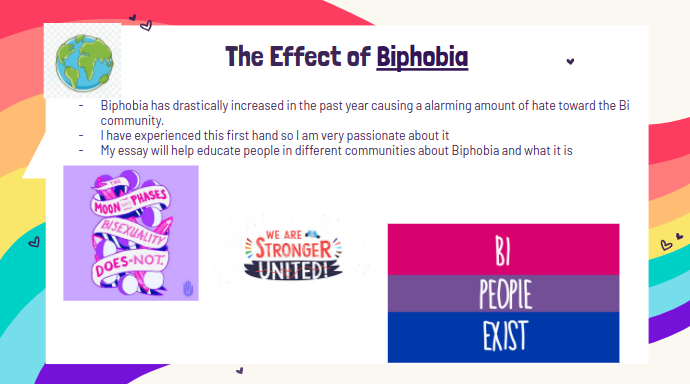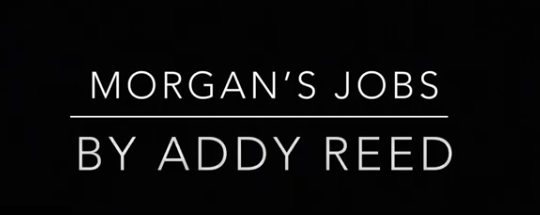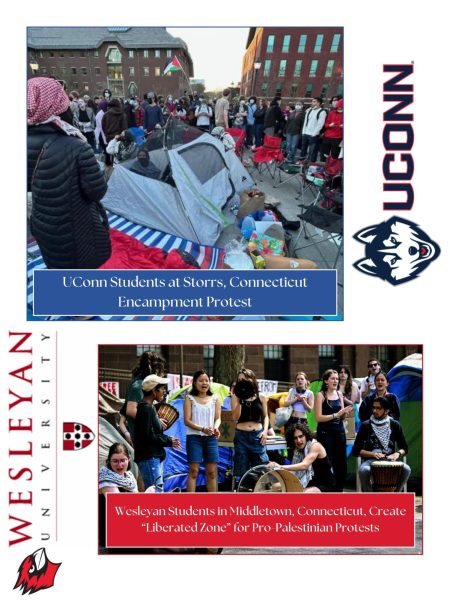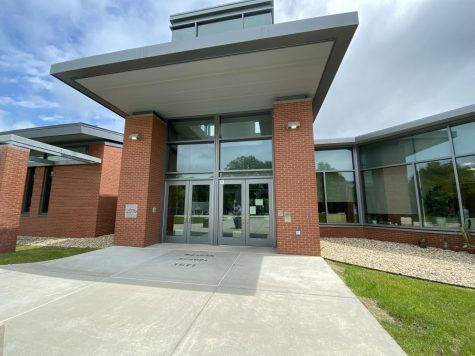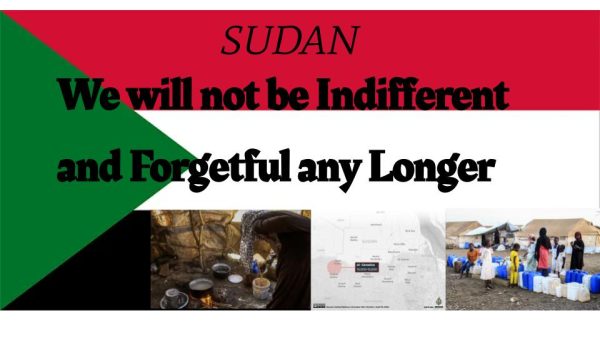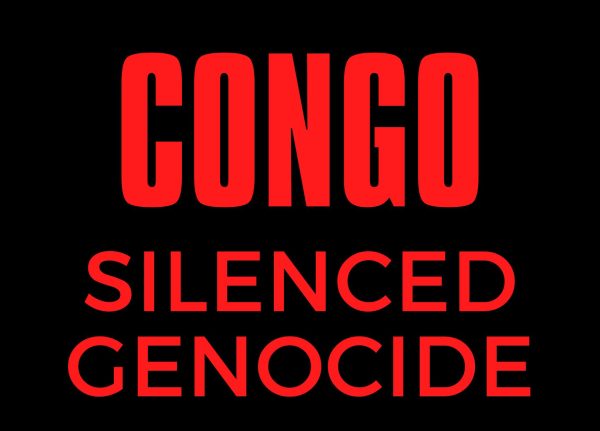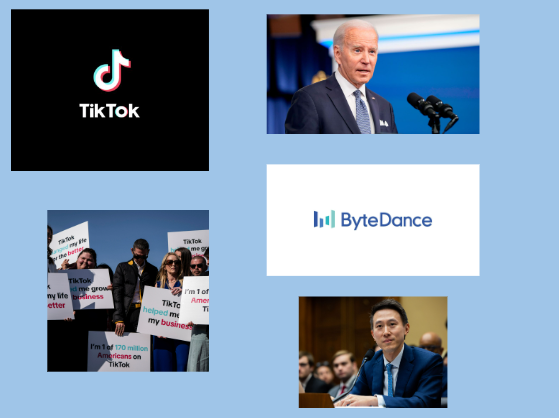The Effect of Biphobia
Bisexual community feels excluded from LGBTQ+ community
Homophobia is a very well-known issue that we have been battling for years, but the topic that we have overlooked is biphobia. Biphobia and homophobia have caused marches and protests in order to gain more rights surrounding the LGBTQ+ community. In recent years, the recorded incidents of biphobia have dramatically increased which has caused a lot of new issues in the bisexual community. These reports have been from outside the LGBTQ+ community as well as within. This causes depression, a sense of abandonment from the LGBTQ+ community, and a feeling of invalidation within the bisexual community.
Biphobia is an issue that impacts a wide range of bisexual people in today’s society. Biphobia is the dislike or prejudice against people of the bisexual orientation in the LGBTQ+ community. Biphobia has always been an issue in today’s society but has become a much greater and more pressing issue in recent years.
The biphobia in our society that we have grown up with has impacted bisexuals enough to cause what is called internalized biphobia. Internalized biphobia is when someone who is bisexual doubts or feels as though they are not validated in their own sexuality. This means that if a female bisexual was dating a guy or had an interest in a guy, she would feel as though because she likes a male she couldn’t be bisexual because she is not interested in a female at that moment. This is a form of biphobia “‘mislabeling bi people as lesbian, gay or straight, even when they come out as bi’”(HRC Staff). This is caused by people throughout our lives telling us that we can like one gender, either that be the opposite gender or the same gender.
There’s been confusion throughout the years on what bisexuality is, and that causes this sense of invalidation. All this does is cause doubt in the individual and make them feel as though they can’t like both genders, and they have to pick one. This can even happen within the LGBTQ+ community. In the community, there has been a silent fight over whether not being bisexual is a thing. This is because some LGBTQ+ people think that because bisexuals like both genders that they are trying to hold on to the “heterosexual” privileges that come with being hetero.
In addition to that, they think that bisexuals are just homosexuals who are trying to deny their homosexuality. One man, Joe Kort, Ph.D., ran a support group for homosexuals. At one of the meetings, he brought a bisexual man to the group. He claimed that the group did not accept the man stating, “The group was very hard on him, insisting that he had to be one or the other — gay or straight”(Nader). The man who was brought into the group was disowned by his own community, the LGBTQ+ community, all because he was bisexual. This causes a sense of abandonment from the LGBTQ+ community, even though we have all been fighting together for each other’s rights for years. These sorts of actions can lead to people questioning themselves and could lead to bigger mental and physical problems.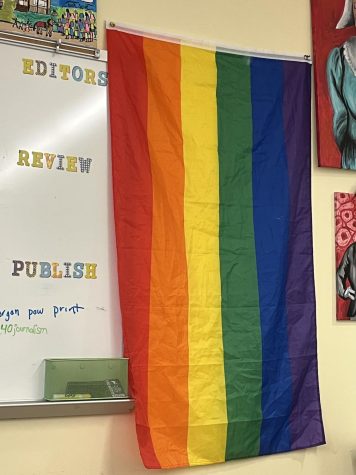
Biphobia can cause depression and self-doubt, which may lead to many other health issues. People who have experienced biphobia in their lives feel as though they can’t be themselves around others. This can lead to individuals slipping into depression and causing them to develop eating disorders by not eating and causing them to be severely depressed. Biphobia can cause self-doubt, which leads people to not know who they are and feeling as though they aren’t themselves anymore. This leads to people feeling detached from their own society and feeling as though that they are not enough for others.
This causes bisexuals to not feel as though they can come out as freely as homosexuals can: “bi people are three times less likely than gay men and lesbians to be out to all of their family (20 percent compared to 63 percent)”(Stonewall Staff).
Bisexuals in recent years have experienced enough hate and exclusion from the people in their lives that they have started to not come out as bi because they feel as though they won’t be accepted.
I have experienced biphobia from many people I have encountered throughout my life, and it has caused self-doubt in my sexuality and myself throughout the years. I always feel as though if I have an interest in a man that I can’t be bisexual because I like a man, therefore I must be straight.
This is the internalized biphobia that is caused by people telling bisexuals that they cannot like both genders. The small acts of self-doubt in someone’s mind can cause them to reciprocate and project biphobia onto other people because they are questioning their own sexuality. I have seen this from many people I have encountered in my life who all were told as kids and teenagers that they can’t like both genders, and they have to pick a side: you’re either straight or gay. This causes them to express their internalized biphobia and project it onto other people by telling them that they aren’t allowed to be bi either. Biphobia with men is a greater issue than with women because people will tell men that they are just confused and that they don’t actually like both.
Also, straight women will avoid getting into a relationship with a bisexual man because they find it gross that they could be with a man who also likes men. This causes doubt in the man and causes internalized biphobia which can affect their mental health. With bisexual women, it is the opposite. People will often fetishize bisexual women and use their sexuality to try and justify their lust for threesomes. People have found many ways to sexualize bisexuals and make them feel as though they do not belong. This has caused an increase in mental health issues within the community that has not been addressed because individuals are too scared to come out and try to talk to people about it.
Biphobia is an issue that needs to be recognized more throughout the world. Biphobia, whether it is by sexualization or discrimination, causes major mental health issues within the community and must be stopped. Not only do we need to inform the public on this issue and make it known, but we need to inform the LGBTQ+ community and make them recognize the biphobic comments that they make. Our world is changing, and we must act now so that it changes for the better, not the worse.

